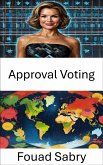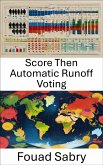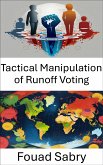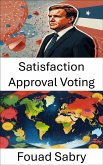"Voting Paradox," part of the "Political Science" series, dives deep into democratic decision-making, unraveling electoral dilemmas and anomalies in modern voting systems. It's an essential read for professionals, students, and enthusiasts seeking insights into the complexities of voting theory.
1: Paradox of voting - Challenges the notion of rational voting and its effectiveness.
2: Approval voting - Explores strategic complexities of casting positive votes.
3: Strategic voting - Reveals how voters use tactics to shape election outcomes.
4: Condorcet paradox - Examines majority preference contradictions in pairwise voting.
5: Condorcet method - Evaluates ways to resolve the Condorcet paradox with pairwise comparisons.
6: Median voter theorem - Analyzes how the median voter impacts electoral outcomes.
7: The Myth of the Rational Voter - Discusses voter biases and their democratic implications.
8: Borda count - Assesses the fairness of this ranked voting method.
9: Instant-runoff voting - Evaluates sequential elimination of candidates for majority support.
10: Comparison of electoral systems - Compares strengths and weaknesses in voter representation.
11: Public choice - Applies economic theory to political decision-making.
12: Rational ignorance - Explores voter apathy and disinterest in political knowledge.
13: Condorcet winner criterion - Defines challenges in achieving an agreeable election outcome.
14: Participation criterion - Examines voting systems that promote voter engagement.
15: CPO-STV - Balances proportional representation in multi-seat elections.
16: Rational irrationality - Investigates how irrational actions lead to predictable outcomes.
17: Electoral system - Analyzes the influence of electoral systems on democracy.
18: Ranked voting - Explores the fairness of ranked voting in diverse preferences.
19: Altruism theory of voting - Questions the role of altruism in voter behavior.
20: Impartial culture - Advocates for fair and transparent decision-making.
21: Condorcet efficiency - Evaluates how efficiently systems represent voter preferences.
"Voting Paradox" offers not only knowledge but actionable insights into democratic governance, making it an indispensable resource for anyone looking to explore the complexities of electoral systems and voting theory.
1: Paradox of voting - Challenges the notion of rational voting and its effectiveness.
2: Approval voting - Explores strategic complexities of casting positive votes.
3: Strategic voting - Reveals how voters use tactics to shape election outcomes.
4: Condorcet paradox - Examines majority preference contradictions in pairwise voting.
5: Condorcet method - Evaluates ways to resolve the Condorcet paradox with pairwise comparisons.
6: Median voter theorem - Analyzes how the median voter impacts electoral outcomes.
7: The Myth of the Rational Voter - Discusses voter biases and their democratic implications.
8: Borda count - Assesses the fairness of this ranked voting method.
9: Instant-runoff voting - Evaluates sequential elimination of candidates for majority support.
10: Comparison of electoral systems - Compares strengths and weaknesses in voter representation.
11: Public choice - Applies economic theory to political decision-making.
12: Rational ignorance - Explores voter apathy and disinterest in political knowledge.
13: Condorcet winner criterion - Defines challenges in achieving an agreeable election outcome.
14: Participation criterion - Examines voting systems that promote voter engagement.
15: CPO-STV - Balances proportional representation in multi-seat elections.
16: Rational irrationality - Investigates how irrational actions lead to predictable outcomes.
17: Electoral system - Analyzes the influence of electoral systems on democracy.
18: Ranked voting - Explores the fairness of ranked voting in diverse preferences.
19: Altruism theory of voting - Questions the role of altruism in voter behavior.
20: Impartial culture - Advocates for fair and transparent decision-making.
21: Condorcet efficiency - Evaluates how efficiently systems represent voter preferences.
"Voting Paradox" offers not only knowledge but actionable insights into democratic governance, making it an indispensable resource for anyone looking to explore the complexities of electoral systems and voting theory.
Dieser Download kann aus rechtlichen Gründen nur mit Rechnungsadresse in A, B, BG, CY, CZ, D, DK, EW, E, FIN, F, GR, H, IRL, I, LT, L, LR, M, NL, PL, P, R, S, SLO, SK ausgeliefert werden.









